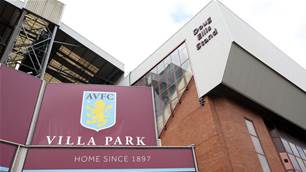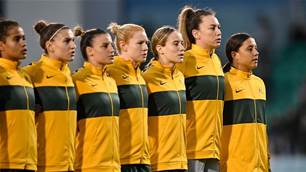CAPITAL Football’s ambitious Youth United concept is facing stiff resistance from some local clubs unwilling to lose the cream of their talent to the elite squad.
Youth United is seen as the first step towards a team in the National Youth League and the ultimate goal of an A-League franchise in the ACT.
But au.fourfourtwo.com understands clubs are peeved the governing body is fielding a team in direct competition to the clubs it oversees.
And there is a push to see resources redirected towards improving the level of coaching and opportunities for all players at the grassroots.
Youth United is scheduled to play in the U20s comp this season which is already under way. A meeting between Capital Football and club chiefs took place last week and it is understood another meeting was planned for last night.
The federation appears to have strong backing from parents of players selected for the gun squad, concerned the move by clubs could scupper a future A-League bid.
A letter provided to au.fourfourtwo.com and signed Youth United Parents 2013 states: “It has come to our attention that some club(s) are seeking to disband the newly formed Youth United Squad which is made up of players from the ACT 2012 National Challenge Squad.
“We are firmly of the view that the future of ACT football (including the surrounding region) lies in Canberra eventually having a team in the A-League.
“The Canberra public will demand the opportunity to watch football played at its highest level – just as it does for rugby league (the Raiders), rugby union (the Brumbies), baseball (Cavalry), women’s basketball (Capitals) and women’s football (Canberra United).”
The letter addressed to the federation board goes on to say: “Failure to provide an A-League team will see football in the area eventually decline to little more than park football status in terms of standard and the number of fans following the local game. Already coverage of the game in the local media is miniscule.
“Essential to the formation of an A-League team would be a team in the National Youth League as the NYL Team would help supply the Canberra A-League team with players of sufficient ability.
“The YU squad provides a nurturing environment with a view to providing the basis of such an NYL team.”
Capital Football’s CEO Heather Reid recently spoke glowingly of the Youth United concept and the move towards a Canberra United NYL team which, unlike the locally-based but nationally focussed AIS squad, would provide a pathway specifically for talented local players
Last season’s premiers Belconnen United Blue Devils lost a couple of players in pre-season to Youth United and are among those expressing misgivings.
Head coach Steve Forshaw said while he understood the federation had the best interests of the players at heart they may in fact be stunting their development.
“If you take someone out of a Belconnen or Woden or Tuggeranong or any of the other local clubs and put them into (Youth United) they’re guaranteed of playing U20s for the upcoming season,” Forshaw said.
“But if they were to stay at those clubs some of them might have a chance to progress into the first team.
“It also means because they’re taken out of circulation so to speak the clubs themselves are adversely affected because they’ve got less talent to deal with.”
Forshaw pointed to a couple of lop-sided 8-1 scorelines in the recent round of the comp suggesting clubs may lack competitiveness without access to the best players. Youth United have yet to play.
He added: “There are two aspects – what happens for this year with (Youth United) coming in as an U20 team and the proposal for next season where they will be kept together and put in as a Premier League club.
“So they would become competition to my team, Belconnen United, in the Premier League – but we’ve actually provided some of the players.
“Suddenly Capital Football, which isn’t a club it’s an administrative body, is putting teams in to compete with us – and cherry picking the best players.
“Anything that tries to develop better players has got to be given some serious consideration but you’ve also got the competing priority of developing Premier League clubs.”
Forshaw said the development of players should be supported in a club environment and that’s where Capital Football should direct its efforts.
“If the clubs aren’t good enough to do that – if they don’t have the coaching qualifications or they don’t have the expertise then I think Capital Football has to address that as an issue and improve the standard of coaching,” he added.
“Instead of an elite 18 to 20 players having access to specialist coaching and higher standards – if that is in fact what happens – everybody in the football community does.
“Maybe that sort of expertise is better deployed as consultants to clubs to improve the standard of coaching at those clubs. The bottom line is I think it’s the responsibility of clubs to develop players not the governing bodies.”
Forshaw said he hadn’t spoken with other clubs about Capital Football’s decision to “artificially insert” a team in the U20s program.
But he said: “I can’t imagine that teams that might struggle in the competition, that might have access to these better players and therefore improve their competitiveness would be happy about it.”
Little could be done about Youth United this year, he said, because the season had started and the squads finalised.
“We’ve accepted the fact they’re going to be in the U20s this year but we’re not accepting the proposal for next year’s Premier League,” he said.
Related Articles

Aston Villa eye off A-League with Canberra expansion proposal

Canberra hoping for 2022 Matildas matches













